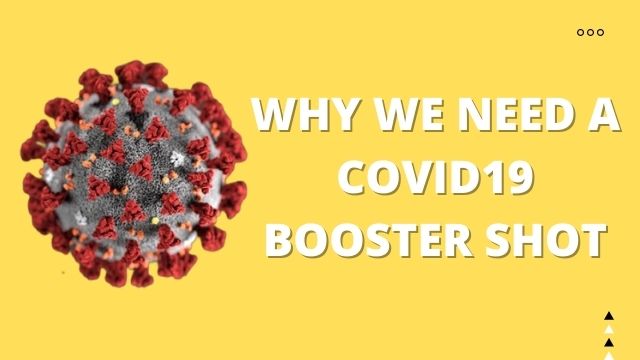
|
Australia is entering a new phase of the pandemic reaching 80% vaccination as the booster rollout kicks off tomorrow. Joining us with more is epidemiologist Mary, Professor Mary Louise McLaws joins me now from Sydney. A good morning, Professor. This is a really interesting topic because we're moving into this second stage now. So why is the first and second dose? Not enough for COVID? Protection? Why do we need boosters?
Good morning back. We need boosters because delta has reduced the vaccine efficacy of both AstraZeneca and Pfizer, we are certainly still protected against death, and very severe infection and hospitalization. But that has been reduced a bit. Why we need a COVID19 booster shot But also we can still get an infection and parted on and the booster will actually reinvigorate our immune system and the result from Israel are really compelling that this is what we need to do. Because the vaccine efficacy is improved with the booster, we're less likely to pass on the infection to others at Marilou.
So this starts on Monday, this has been aimed, the first rollout of the booster program has been aimed at the vulnerable is so people who are in good health Do they still need boosters, I just want to make this clear, because I think there is some confusion. Why we need a COVID19 booster shot Look, it's being rolled out to the vulnerable first. And that's, you know, ethical, that's responsible, but then it will be rolled out to all of us because we all have a risk of passing on an infection to others, even though we are double vaccinated. Why we need a COVID19 booster shot You know, vaccines are great for us as individuals. But as you know, as a group of Australians, we can sadly infect others without that booster. And that booster should start somewhere between the second month after your second dose up to six months. And don't leave it after six months, because there's good evidence that our antibodies start waning at six months, you know, quite dramatically. So if you get a reminder on your phone to come and get the booster, please take up that offer. If you don't get one of those, please start thinking about a booster somewhere between at least by six months, but somewhere between two and six months.
Or, gosh, you know, we are learning a lot as we go to learn as you go, pandemic. And we certainly thought after the second dose, we'd all be good. And then, of course, delta happened. So we may find that, in fact, the vaccine ologists may develop a vaccine where the mutations can't get around the vaccine. Coronavirus So we might only have, you know, a once in a lifetime or once every 10 years. But at the moment, I think we're going to have to get used to the idea had this booster and then we might need to have it you know, in another year or six months, but we'll be finding out often by countries like Israel and the US that have rolled out Pfizer to an enormous number millions of people exactly when we need that third booster if we need a third one. Coronavirus Now nationally, we are at 80%, which is a terrific achievement. But we do have some weak spots who in Queensland are behind and there are low rates in our indigenous communities? Where are we going wrong with this?
Also read - Tokyo ghoul full review
Look, I think Australians will get to 95%. They're amazing at taking up the vaccines for kids and for themselves. 9 News Australia However, in states like the Northern Territory, Western Australia, Queensland and South Australia, they haven't had any experience of having very large numbers read out every day. So I think they felt as if they're not at risk, but they will be in the future when we open up our international borders, and even our internal borders with we've just spoken about having two doses and still potentially being able to give the infection to others while were asymptomatic or have a silent infection, and we need to remind people that if they're unvaccinated, and they feel that that is a personal choice, they are still at risk with a large number of us being double vaccinated. So I think we're not getting the message out there and the indigenous population 80% of infections in New South Wales in the indigenous population have been under 40. 9 News Australia So a quarter in zero to nine years of age a quarter in the 10 to 19 and a third in the 20 to 39. So young people have been neglected and we've seen that across the board until all of a sudden you know it was opened up to the young on September the first we need to help young people in order state get it that we care about them.